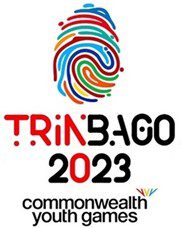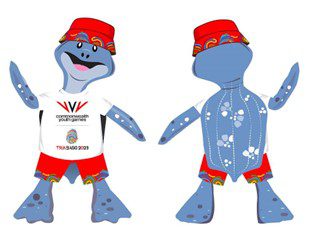Focus on TTO and CYG2023
Today, the attention of the entire Commonwealth of Nations is focused on the twin-island Republic of Trinidad and Tobago as the Commonwealth Games Federation (CGF) celebrates the official opening ceremony of the VII Commonwealth Youth Games (CYG) at the recently refurbished Hasely Crawford Stadium, in Port of Spain, the host’s capital city.
President of the CGF, Dame Louise Martin, when commenting on the CYG, observed, “The Commonwealth Youth Games are an unparalleled opportunity for nations to promote an inclusive and positive youth and sports development agenda. Through this shared focus on youth, I passionately believe that we have shaped the future together – developing and empowering the sporting stars and leaders of tomorrow.”
Background
The Commonwealth Games started as a sporting institution aimed at showcasing the unity of the Commonwealth. Not surprisingly, therefore the event was first called the British Empire Games. They were first held in 1930 in Hamilton, Canada.
From inception, however, the Games were mired in the turbulent politics of the Commonwealth to the point where it became unavoidable as protests became a notable feature of their continued existence, through to the current period. Accordingly, while the authorities awarded the second edition to Johannesburg, South Africa, for 1934, the existence of the cruel apartheid system there stirred enough objections and were moved to London, England.
By the time the Games of 1954 were being determined, several countries had already withdrawn from the British Empire. However, the importance of sport as a vehicle for unity took precedence enough for the membership to change their name to the British Empire and Commonwealth Games. The edition of 1954 was held in Vancouver, BC, Canada and included countries that were no longer part of the British Empire. 16 years later, changing political circumstances caused yet another decision to change the name of the event. The Games of 1970, held in Edinburgh, Scotland were called, the British Commonwealth Games. A mere eight (8) years later, starting with the edition held in Edmonton Canada (1978), and all editions, thereafter, were named, The Commonwealth Games,
CYG
Keen interest in the Commonwealth Games as an institution providing viable competition for several countries that would never have the opportunity to participate in the Olympic Games was a prime factor in the initiative to establish the Commonwealth Youth Games.
The CGF’s decision was realised when Scotland hosted the Inaugural CYG in 2000. Four years later the city of Bendigo, Victoria, Australia, hosted the event.
Pune, India, hosted the CYG in 2008, using it as a forerunner to the nation’s hosting two years later, of the Commonwealth Games in Delhi.
The Isle of Man hosted the CYG in 2011, followed by Samoa in 2013 and The Bahamas in 2017.
Trinidad and Tobago won the bid to host the CYG in 2021 but the global pandemic of Covid-19 caused their cancellation. The bid was reopened for 2023 and the twin-island Republic once more raised its hand to do the honours.
The intention of the CGF is really to encourage small, developing nations that would be considered incapable of hosting the much larger Commonwealth Games, to have the experience of organising multisport Games. The experience would have a significant impact on the development of the wide variety of sport administration skill competencies involved in hosting Games.
Of course, because the competition involves only athletes between the ages of 14 and 18 years, and between 1200 and 1500 participants in total from across the Commonwealth, there is less pressure on hosts to provide five-star accommodation and allows for more realistic planning and execution within the economic realities of the nation.
CGF President, Dame Louise Martin notes, “The Commonwealth Youth Games are an unparalleled opportunity for nations to promote an inclusive and positive youth and sports development agenda. Through this shared focus on youth, I passionately believe that we have shaped the future together – developing and empowering the sporting stars and leaders of tomorrow.”
Of course, for some nations, the experience is often used to reveal themselves to the wider international community for political and economic reasons, sometimes leading to some overexuberance in expenditures that may derail the original intent of the Games.
History beckons
St Lucia
The Eastern Caribbean island nation of St Lucia had officially tendered a successful bid to host the VI edition of the CYG, scheduled for 2017. Unfortunately, circumstances did not allow for this to be realised and so, at the CGF’s General Assembly in Auckland, New Zealand, in 2015, the CGA of St Lucia withdrew its bid. This left any potential host desiring to step forward, only two years within which to plan and execute the developmental event.
The Bahamas
The Commonwealth of the Bahamas readily stepped forward, replacing St Lucia as the first Caribbean nation to host the CYG. Then President of the CGA of The Bahamas, Wellington Miller, who would later take on the responsibility of Chair of the Local Organising Committee (LOC), on winning the bid, readily declared, “For us it’s history in the making. We’re going to razzle-dazzle the Commonwealth”.
The Bahamas hosted the CYG 18 – 23 July 2017 with 63 CGAs represented by 1049 athletes, aged 14 – 18, participating in a total of 96 events over six days of intense competition.
For her part, Dame Louise Martin, President of the CGF, the hosting of CYG2017 was “a turning point in the island’s incredible sporting history”.
Trinidad and Tobago
Trinidad and Tobago’s hosting of the VII Commonwealth Youth Games adds a significant feature to that country’s sporting history as much as it does to that of the CGF, an organisation that has, in many ways, become the face of the Commonwealth.
The twin-island Republic will be only the second Caribbean nation to host the CYG. This comes after The Commonwealth of the Bahamas hosted the CYG in 2017, becoming the first Caribbean nation to achieve this feat.
Known for the artistry of the world’s most excitingly entertaining Carnival celebrations, Trinidad and Tobago has promised to offer the Commonwealth and the rest of the world, an exciting array of all that it has to offer, culturally, while delivering the latest edition of the CYG.


Imbued by a strong dose of realism, the Organising Committee and the CGF agreed on seven sports shared between Port of Spain, home to the Hasely Crawford Stadium, Couva, where there is a cluster of competition venues, and Tobago, the third cluster of competition venues.
The intention is for the visiting delegations to get an understanding of the essentials related to being a twin-island nation with a truly cosmopolitan cultural mix reflected in all aspects of life.
The sports are, Athletics, Aquatics (Swimming), Beach Volleyball, Cycling, Netball (Fast 5), Rugby Sevens and Triathlon.
Over the past several years Trinidad and Tobago has constructed some of the best sporting facilities in the world. The Cycling Velodrome is considered to be of stunning world-class and is already host to several major international events.
The Aquatics centre, located in the same complex as the velodrome, is also already touted as an amazing institution.
Vincentian participation
The Vincentian team to CGY2023 comprises:
Athletics – Shaquania Jacobs, Thyra Charles, Keo Davis, and AJ Delpesche.
Netball – Ketonna Campbell, Jamirah Coombs, Jamarah Coombs, Jada Berkley, Deonda Creese, Skye Baptiste, Kayla Miller, Zaundra Richards, Vatesha Pompey, Giada Small.
Swimming – Kevern DaSilva, Brandon George, Jamie Joachim, Tamarah St Hillaire
This country first participated in the CYG when it was held in the Isle of Man.
The St Vincent and the Grenadines Olympic Committee also serves as the Commonwealth Games Association and hence has membership of the Commonwealth Games Federation.
The team to CYG2023, therefore, falls under the ambit of the SVGOC in its mandate as the CGA. With the entire Commonwealth present in Trinidad and Tobago, the challenges facing our representatives are monumental. The competition will be tough. We nonetheless hope that they will give a good account of themselves in their various competitions.






